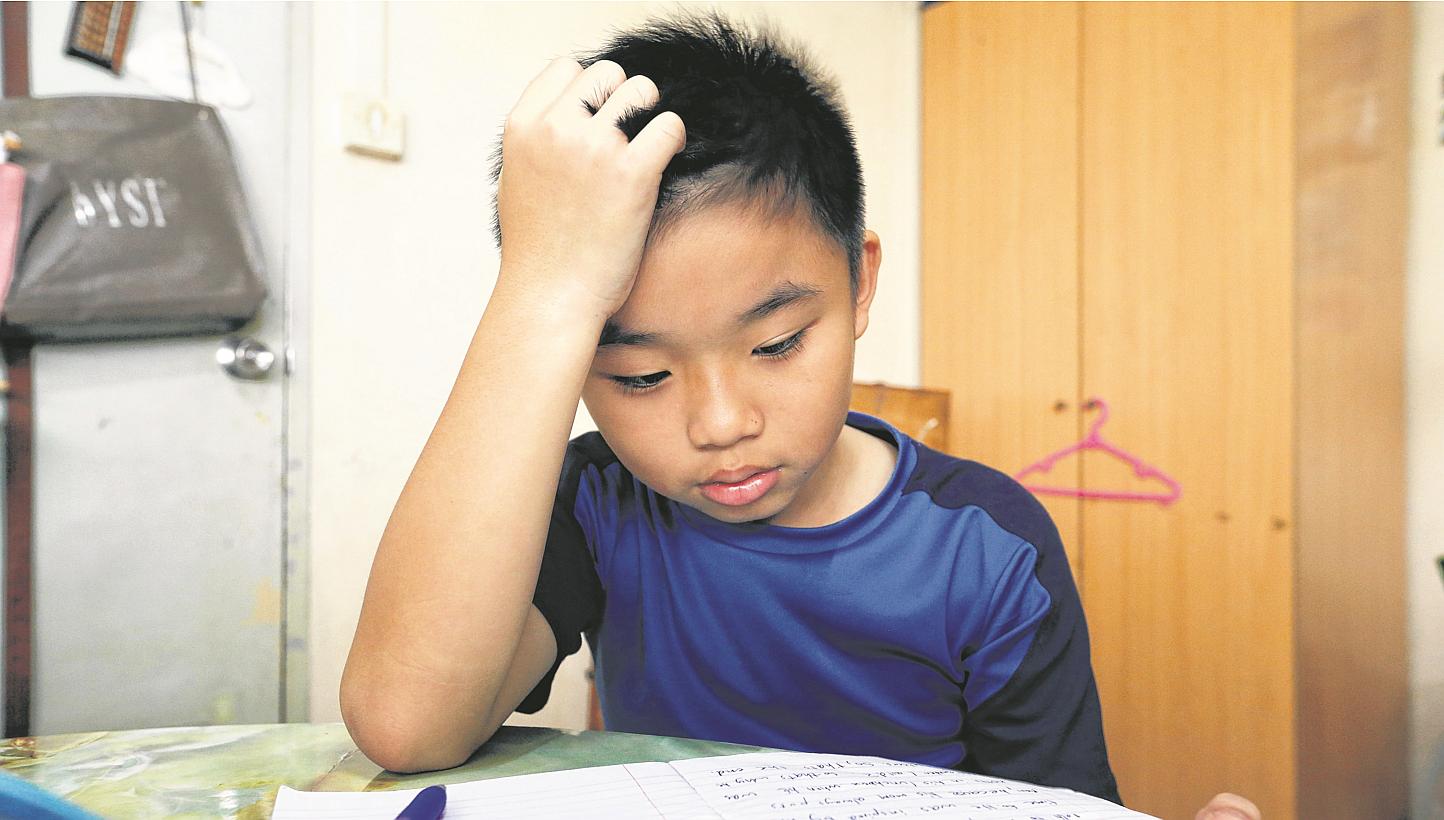Many parents not alert to child's lack of sleep: Study
Sign up now: Get ST's newsletters delivered to your inbox

Tay Danzel, 10 trying to concentrate on his homework. More than a third of lower primary school pupils are not getting enough sleep, but only 8 per cent of parents recognise that their child may have sleep problems. -- ST PHOTO: CHEW SENG KIM
SINGAPORE - More than a third of lower primary school pupils are not getting enough sleep, but only 8 per cent of parents recognise that their child may have sleep problems.
A survey by four Nanyang Technological University (NTU) students of more than 300 parents last November and December found that 37.5 per cent of six-to-nine-year-olds show signs of sleep deprivation.
"It is worrying that parents don't realise that sleep deprivation is an issue among kids," said final-year communication studies undergraduate Cai Yiming, 24. He carried out the survey with fellow students Jeremiah Wong, 25, Joan Agustin, 22, and Muhammad Dinie, 25.
Mr Cai added: "There is a need for better awareness. Most parents were surprised by our findings."
On a school day, most pupils sleep an average eight hours, fewer than the nine to 10 hours they should ideally clock. This means if a child gets up at 6am, he has to be in bed by 9pm, at the latest.
However, 88.8 per cent of the children hit the sack after 9pm, when most of them need to wake up early as primary schools start at 7.30am.
The study was part of a social campaign, The Pillow Police. It was part of the students' final-year project and done in collaboration with the National University Hospital (NUH) which, among other things, contributed to the analysis of data findings.
The study found that about four in 10 pupils feel sleepy during the day and 37 per cent do not go to bed at the same time every night.
Dr Michael Lim, a paediatric pulmonary and sleep consultant at NUH, said: "Children should be sleeping earlier if they have an early start to the day.
"There also has to be a consistent bedtime routine. It is not only about the sleeping hours but also the quality of sleep."
Parents should look out for signs such as restlessness, he added.
Common effects of sleep deprivation in children include deteriorating grades, inattention, poor decision-making skills and a higher risk of displaying anxiety and depressive symptoms.


